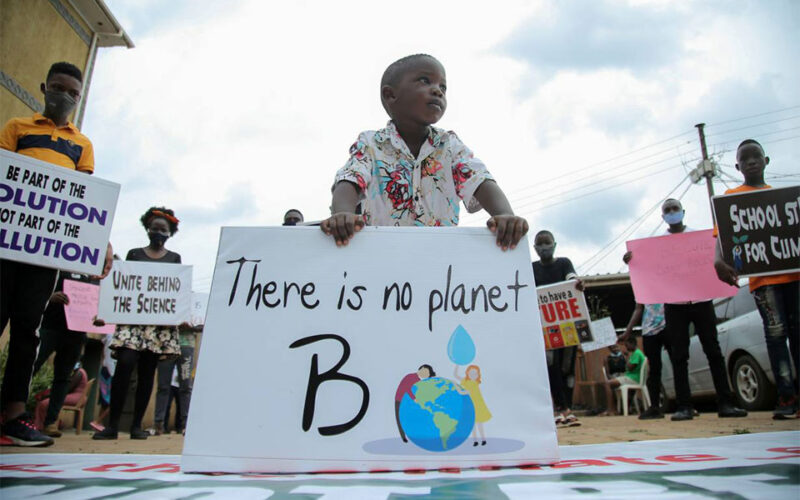CHRISTOPHER BENDANA
INSPIRED by a similar diversity policy, Uganda’s government is set to require public agencies to allocate part of their budgets to climate change measures if they want state funding, hailing the move as a big step toward meeting the nation’s green goals.
But while some climate experts say linking funding to climate action is essential to slowing global warming, others warn that already tight local government budgets mean the policy would do little to help.
As part of the country’s first National Climate Change Bill, passed by legislators in late April, all government ministries, departments, and agencies would need to submit a climate change compliance certificate to get their funding.
President Yoweri Museveni is expected to sign the bill into law by Thursday.
To be certified, agencies would have to show they have set aside money for climate change measures, although the law does not specify how much, said Lawrence Biyika Songa, chairman of parliament’s climate change committee, which pushed the bill.
“We did not put a percentage of what is required in each government entity, (but) they are compelled to allocate a reasonable amount to climate change activities,” Songa told the Thomson Reuters Foundation in a phone interview.
Aaron Werikhe, the focal person for climate change at Uganda’s National Planning Authority – which will grant the compliance certificates – said adherence will be judged on how well the agencies’ budget allocations line up with the goals of the country’s climate plan.
The authority is already providing government bodies with guidelines on how to integrate climate change activities into their budgets to help Uganda move towards meeting its near-term climate targets, he said.
Those are supposed to be achieved by the financial year 2024-2025 and include increasing forest coverfrom about 9% to 15%, boosting the share of clean energy used for cooking from 15% to 50%, and reducing the average annual increase in the country’s greenhouse gas emissions from nearly 1.4% to 1%.
‘LAYER OF SCRUTINY’
Climate change is the second priority area in which Uganda’s government wants to require a certificate of compliance to access funding.
In 2015, the government introduced gender and equity certification aimed at making state agencies more representative of and accessible to women and other marginalised groups.
The law requires that government bodies score at least 50% in an assessment by the Equal Opportunities Commission (EOC).
In practice, that requirement has led to increased lending to women entrepreneurs, better access to sanitary pads to help keep girls in school and more jobs training programmes for girls and women.
Today, Uganda’s government agencies have reached an average 66% compliance rate for gender and equity spending, up from 40% when the certificate was first introduced, according to EOC figures released earlier this month.
Patrick Katabaazi Kiconco, executive director and founder of the Center for Budget and Tax Policy, a Ugandan think-tank, equated the new climate change certification to a watchman.
“It creates a layer of scrutiny,” he said.
“Ordinarily you would have a climate change law and people don’t implement it. This is a second eye that looks at every stage of planning, budgeting and implementation and ensures a clear-cut (plan) of activities that are responsive to climate change.”
CONSTRAINED BUDGETS
In recent years, Uganda has struggled with disastrous and deadly effects of climate change, including more erratic rainfall and prolonged droughts that have affected millions of families who depend on rain-fed agriculture.
Many parts of the country, including the capital Kampala, are also prone to severe flooding.
With Uganda in the midst of its rainy season, the government in mid-May promised 10 billion Ugandan shillings ($3 million) in aid to help flood and landslide victims in some of the country’s consistently worst-hit districts, including Kasese, in western Uganda, and Butaleja, in the country’s east.
Alina Averchenkova, a climate change expert at the London School of Economics, said she is not aware of other countries that specifically use a certificate of compliance to boost funding for climate measures.
But many – including Colombia, Germany, Sweden and France – recognise that allocating enough resources for environmental policies is essential to protecting their citizens against the worst effects of climate change, she said.
Revocatus Twinomuhangi, a lecturer at Makerere University’s Centre for Climate Change Research and Innovation, said while the climate change certificate is a good step, the lack of clarity on how much agencies should set aside means the resulting funding will likely not be enough.
“Our budgets … are already constrained,” he said. “We don’t (even) have money for activities like education and health.”
Uganda’s annual budget fell this year to 41.3 trillion shillings, down from nearly 46 trillion shillings in the last financial year, largely due to the impact of the COVID-19 pandemic, government officials have said.
Twinomuhangi suggested Uganda consider creating funds similar to the County Climate Change Fundsused in neighbouring Kenya, where counties legally commit to putting part of their annual budgets – a minimum of 1-2% is recommended – to climate change mitigation.
Bob Natifu, a climate change outreach officer in the environment ministry, said he also worried that the unpredictability of planetary heating’s effects on everything from farming yields to public health would make it tough to predict which measures should be funded.
“It is difficult to plan for adaptation,” he said.














